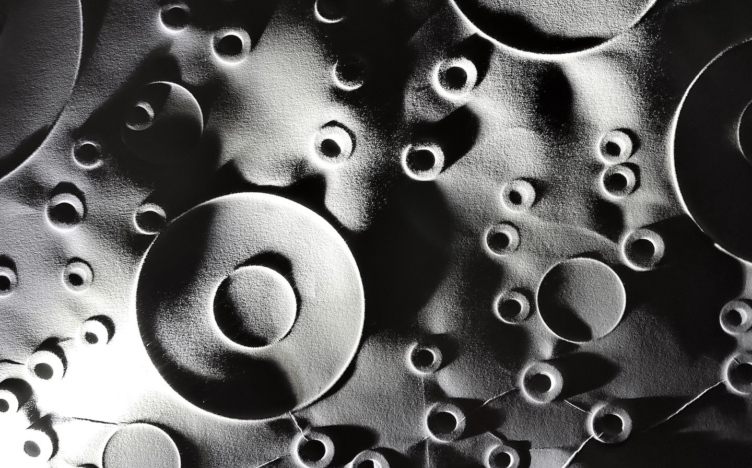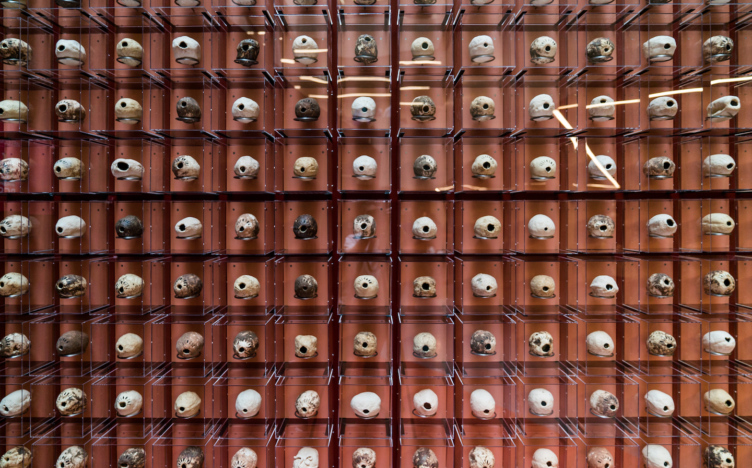31/07/2020 - 25/09/2020
I am observing the relationship between humankind and nature on many different levels. I am interested in raising questions like: Are we still part of nature? What is ‘nature’ at all? Could our planet, as we ourselves have shaped it, be what ‘real nature’ is? Are we artificial? Are we natural? We are not the crown of evolution. Are we?
In this questioning process, our disturbed relationship becomes clear to me – as on the one hand, we perceive ‘nature’, rather romantically, as a paradise-like place of longing; while on the other hand, we keep pushing it even further back as a consequence of our current form of civilisation. There is hardly any place on earth where mankind hasn’t been, and there is certainly no place on this planet that we’ve left completely untouched. I consider the two forces, nature and humankind, as divergent positions rather than as a unit – both equipped with tremendous power.
Are we still part of nature? In order to find an answer for these questions, I have gone through a process in which nature for me at first – quite naively – represented a romanticized place of longing. I yearned to escape from the, as it seemed to me, destructive civilization that surrounded me and take refuge in an untouched place. Being highly attracted to places that appear to have been unaffected by man for the last 10 years, I began conducting my own small expeditions, or rather, self-experiments, so to speak.
Loaded with a backpack filled with all sorts of ridiculous survival gear and food, I set off deep into the mountains and forests until I lost myself in vast countryside settings. Besides thoroughly enjoying being within some of these surroundings, to some extent I also had very unpleasant experiences that cured me of my former romantic ideas. Meanwhile, my interest began to shift towards places where nature could be seen to be slowly taking over. Places that humans have strongly influenced and now are no
longer habitable for us – for example, Chernobyl – are a symbol for me that man was indeed part of this environment for a certain amount of time, but that he does not exist at the end of history. Humankind is constantly redistributing resources on this planet, thus shaping its appearance – this fact leads to speculations in my work-in-progress.
We are not the crown of evolution. Are we?






Nadine Baldow
Nadine Baldow is a visual artist working mainly with site-specific installations. She studied with professor Eberhard Bosslet, at the Academy of Fine Arts in Dresden after completing a woodcarving apprenticeship in the Alps. Her work predominantly addresses the relationship between humankind and nature, and their ongoing impact on each other. Aside from the residency at Leitrim Sculpture Center, she has been part of the artist-in-residence in the Himalayas in India; at Gozo Contemporary in Malta, the national park Šumava in Czech; the nature conservation island Vilm in Germany; Urban Nation – museum for urban contemporary arts in Berlin, the Baumwollspinnerei Leipzig (Halle 14) and in Seoul, South Korea in cooperation with the Hansung University, where she created a site-specific intervention. She has also produced several public space interventions in Panjim, Dresden, and Görlitz; and has exhibited her work in Switzerland, Germany, Poland, the Netherlands, and India. Her work has been shown at the Contemporary Art Week Delhi; the International Exhibition for Contemporary Art, Ostrale; Urban Nation Berlin and the ArtFair Düsseldorf.
Website: https://www.nadinebaldow.com
Instagram: https://www.instagram.com/nadi...



